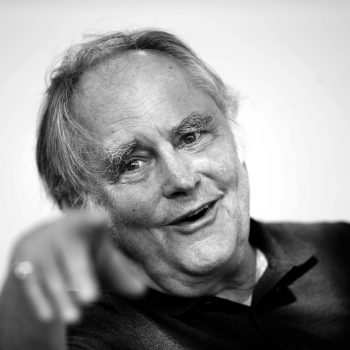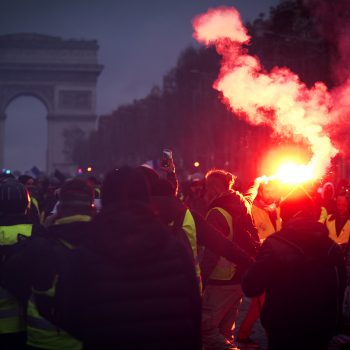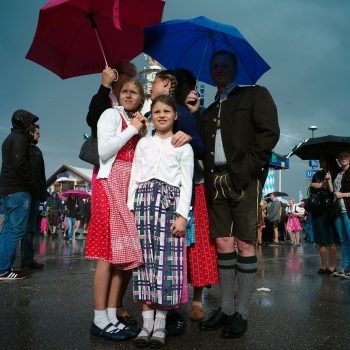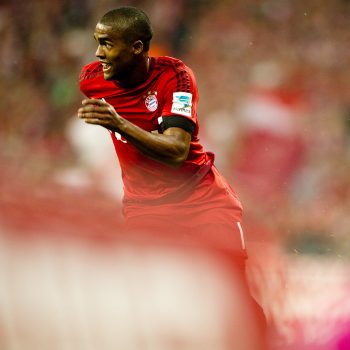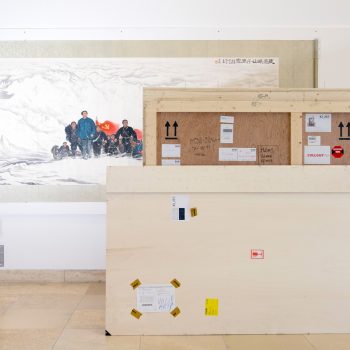Über Fotografie
“Fotografien haben immer etwas mit Macht zu tun. Schließlich bedeutet jede Form der Sichtbarmachung auch, dass etwas unsichtbar bleibt.” Karen Fromm (in einem 2019 publizierten Interview der Süddeutschen Zeitung)
In der Fotografie, zumal in der Pressefotografie, spielt der Begriff der Wahrheit und damit zusammenhängend der Begriff der Objektivität eine große Rolle. Grundsätzlich bildet die Kamera ja nichts anderes ab, als das, was ihr faktisch vorgesetzt wird. Trotzdem ist nichts falscher und trügerischer als die scheinbare Objektivität der Kamera. Fotografieren ist zwar immer Abbilden, zugleich aber auch Interpretieren, manchmal auch Kommentieren. Der Fotograf ist Zeuge einer bestimmten Situation, aus deren Beurteilung heraus entscheidet er, was und wie er etwas fotografiert. Das heißt, als Fotograf muss ich auch hinter die Oberfläche blicken können und ich muss in der Lage sein, auf das Bild gestalterisch Einfluss zu nehmen, ohne manipulativ zu sein. Für mich war es ein langer Prozess herauszufinden, wie genau dieses Verhältnis zwischen Zeuge-Sein und Gestalter aussehen kann. Am Anfang meiner fotografischen Tätigkeit habe ich oft versucht, dramatisch zugespitzt, effektvoll, um nicht zu sagen effekthascherisch zu fotografieren. Später habe ich die Vorzüge eines distanzierteren Blickwinkels zu schätzen gelernt. Heute fotografiere ich vielleicht so, dass meine Fotografien erkennen lassen, dass ich Beobachter bin. Ich halte das für ehrlicher und einer gewissen Weise auch für schöner.
About photography
“Photographs always have something to do with power. In the end every instance of making something visible also means that something else remains invisible.” (Karen Fromm, Professor for Photo Journalisme and Documentary Photography at Hannover High School)
In photography, and particularly in photojournalism, the concept of truth and hence the concept of objectivity play a vital role. The camera captures merely that what appears in front of it, yet nothing is more wrong and deceptive than the seeming objectivity of the camera. While photography is depiction, it is at the same time interpretation and sometimes also commentary. The photographer is witness to a particular situation and uses his judgment to decide what and how he photographs. That means as a photographer I must be able to look beyond the outer surface and use creative influence over the image without being manipulative. For me it was a long process to achieve the right balance between being a witness on the one hand and an artistic creator on the other. At the beginning of my photographic career I often tried to over-emote my pictures, to emphasize the dramatic character of something, to strain for effect. Later I learned to appreciate the advantage of a more distant point of view. Today my photographs show that I am an observer, which I find more honest and in a certain respect, more beautiful.
Sur la photographie
“Les photos ont toujours quelque chose à voir avec la puissance. Enfin tout ce qui a à voir avec le visible signifie que quelque chose reste invisible.” (Karen Fromm, professeur de photojournalisme et de la photographie documentaire à l‘université de Hannovre)
Dans la photographie et particulièrement dans la photographie de presse l’idée de vérité et qui plus est d’objectivité joue un rôle essentiel. En fait l’appareil photo ne reproduit que ce qui est mis devant l’objectif. Qui a t-il de plus trompeur que l’apparente impartialité photographique! Photographier c’est toujours reproduire, mais aussi interpréter et parfois commenter. Le photographe est témoin d’une certaine situation, mais c‘est à lui de décider l’objet et la manière dont il va photographier. En même temps ça signifie que le photographe est obligé de regarder par delà la surface des choses, de voir ce qui est invisible et influencer la création d’une photo sans être manipulateur. Pour moi ce fut un long processus pour atteindre un juste équilibre entre témoin objectif et création artistique. Au début de ma carrière photographique j’ai essayé de dramatiser l’effet, de trop accentuer l’expression émotionelle. Plus tard j’ai découvert les avantages d’un angle d’approche plus discret, plus distant. Aujourd’hui je photographie d’une manière qui témoigne de l’observation. Je pense que c’est plus honnête, et, peut-être aussi plus esthétique.
